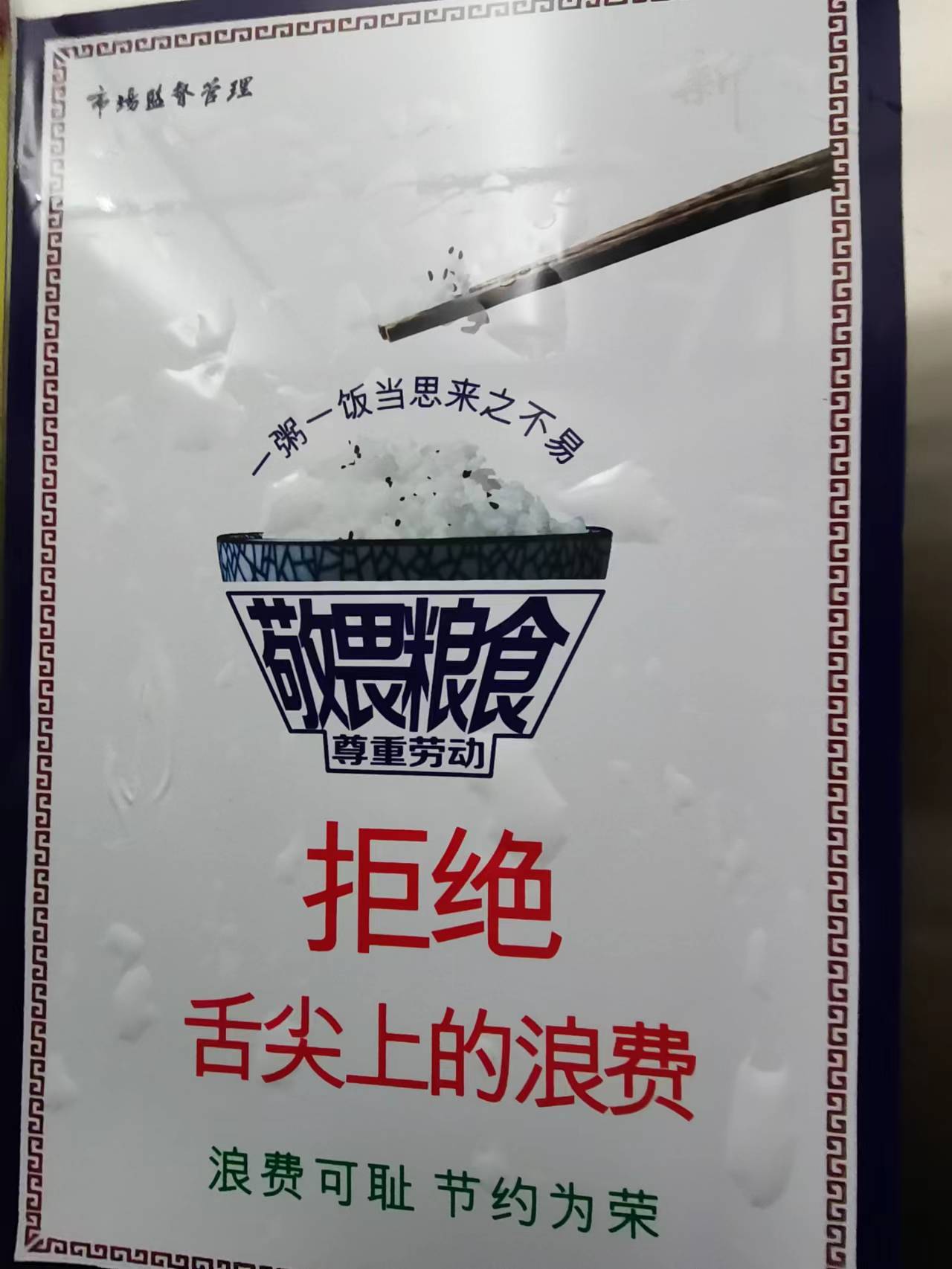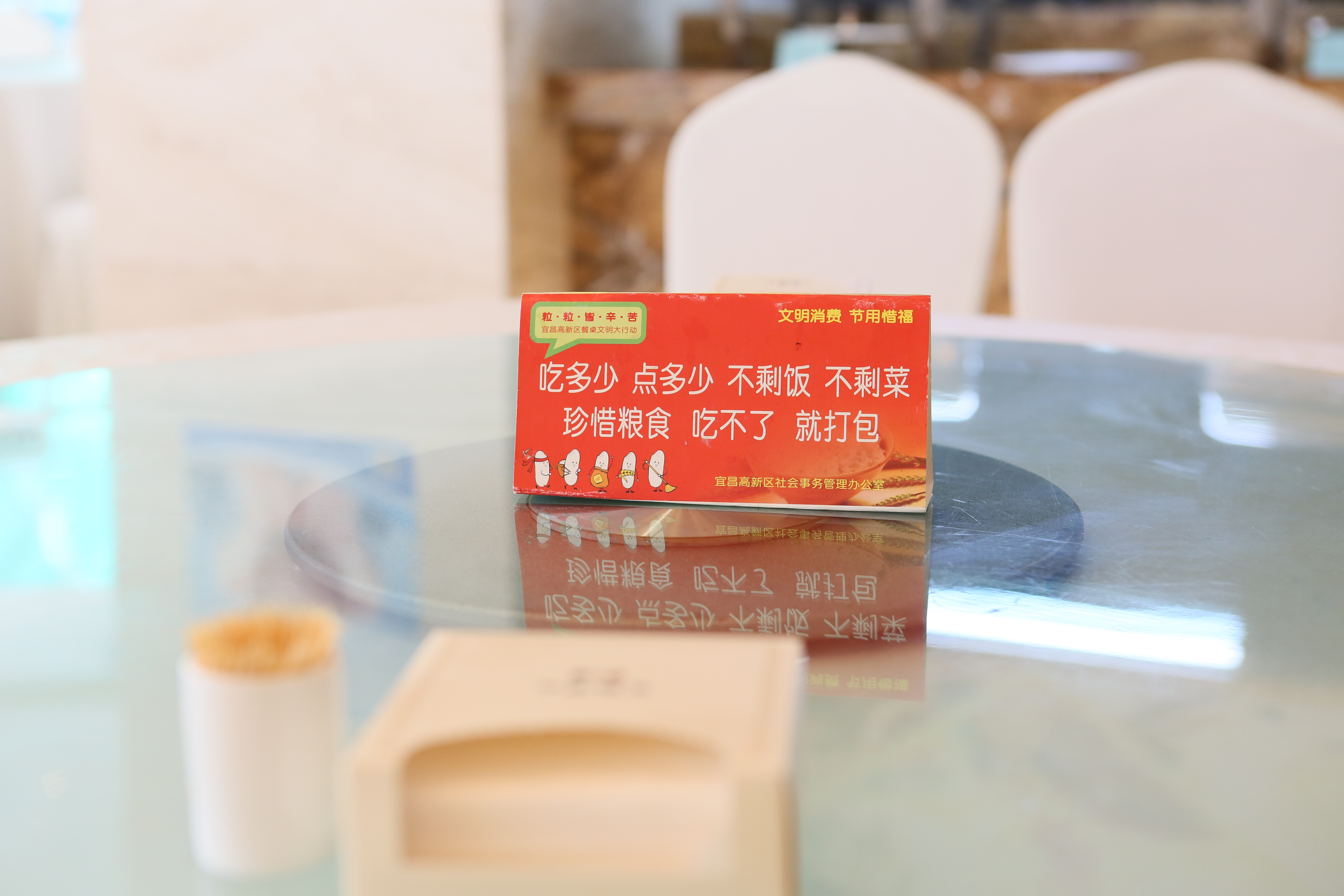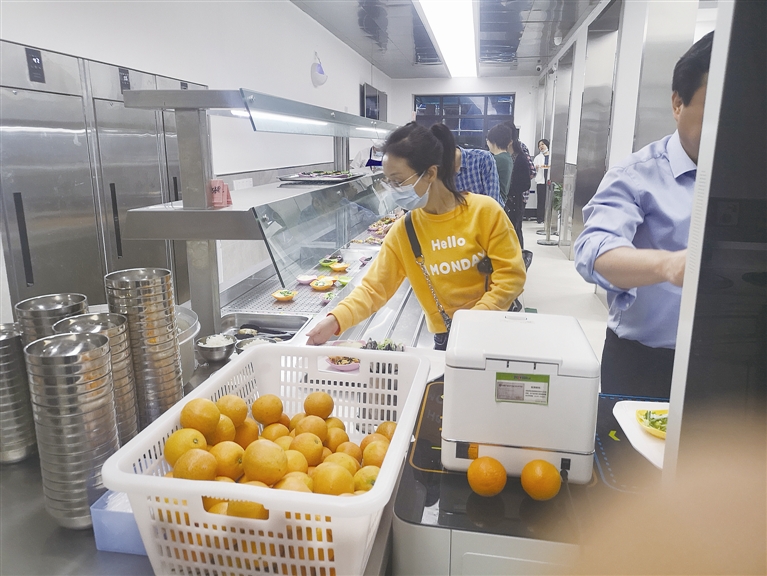Anti-food waste, a common mission of Yichang
2023-06-08 19:06:53
By Chen Zai, Yichang International Communication Studio

Yichang has 400 model catering units of anti-food waste.


Since China's Anti-food Waste Law went into effect in 2021, Yichang City has followed the law closely, aiming to reduce food waste behaviors.

Yichang has 400 model catering units of anti-food waste.
Since the implementation of the Anti-food Waste Law across China in August 2021, the Yichang market regulatory administration has invested 4 million yuan into its central urban area to build 400 model catering units. Among those 400 units is Banshan Hotel.
In Banshan Hotel's restaurant, waiters make a point to remind diners to follow the "One Dish Per Person" proposition of ordering aimed at avoiding food waste. On dining tables, slogans such as "Order however much you eat, “No leftovers,” and "Cherish food and take away the leftovers,” are posted. Chefs in the kitchen make sure to utilize everything, saving on ingredients and enriching the menu.

"In the past, only the top part of the cauliflower was used, which meant we were only using about 60 to 70 percent. Now, by pickling the cauliflower stalks which used to be discarded into delicious pickles, 90 to 95 percent of the cauliflower is used,” said Deng Yongfan, the head chef at the restaurant.
"There used to be about four barrels of kitchen waste a day. Now it is only half of that amount,” said Li Chao, a manager at Banshan Hotel.
Yichang has mobilized 4,000 units of 4 systems to work together.
Yichang is one of the first cities in the country to incorporate anti-food waste policies into its construction of a civilized model city. It implements anti-food waste measures in a total of 4,000 catering units from 4 systems: party and government offices, kindergartens and schools, nursing homes, and large and medium-sized catering units.
The canteen at Yichang’s Municipal Government changed the food-serving dishes from large to small in an effort to reduce waste. The canteen also optimizes its food-production procedures by analyzing background sales data and making anti-waste plans. At the food waste recycling spot, leftovers are now rarely seen on most dinner plates. The person in charge said that the current kitchen waste has been reduced by about 50 percent when compared with two years prior.

Yichang Shenzhen Road Primary School has established a grade-by-grade meal system according to the different food intakes of students at different grades, and has added additional meal windows for students who need extra food, which not only avoids waste but also allows students to eat well.
A Primary School in Yichang's Longquan Town grades its classes by the amount of kitchen waste generated each day, guiding students to be conscious of their food waste. Fu Yundi, principal of the school said that the grading system fully mobilizes students' enthusiasm for saving food and that the two large buckets of students' wasted food of about 100 kilograms have now been reduced to only half a bucket, mainly consisting of bones and peppers.
Today, in Yichang, anti-food waste is covering every catering unit, every dining table, and every consumer. It has become the consensus and pursuit of the whole society.






